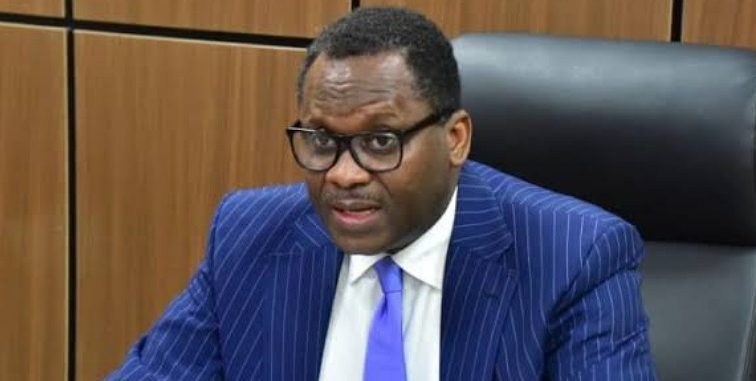The Federal Competition and Consumer Protection Commission (FCCPC) has said the calls for the outright ban of loan apps by some Nigerians are practically impossible because of the way they operate.
The Chief Executive Officer of the Commission, Mr. Babatunde Irukera, who stated this in an interview with Nairametrics, said aside from the fact that banning them totally would not solve the current challenges, the internet allows them to operate from anywhere in the world.
While noting that several other countries are facing similar challenges, Irukera said a ban would be a mere pronouncement.
He acknowledged that despite the recent registration exercise that saw over 180 digital lenders captured, some of the registered lenders have been discovered to be creating other apps to do business, which allows them to continue their unethical practices. He, however, any company found guilty of that will be permanently removed from the list of approved loan apps in the country.
Ban is not a solution
Highlighting reasons banning the loan apps may not work, Irukera said:
- “The advocacy and campaign for an outright ban while understandable is simplistic and presents no solution. For a business that can evade regulatory interfaces including operating entirely offshore, and possessing the versatility to evolve, rebrand, relaunch, rebirth, or relocate on the internet and needing no physical location, a ban is at best only a pronouncement, and may very well amount to nothing much more than that.
- “The very hard and continuous work of tracking and reigning illegality in with respect to this industry is the task we must all commit to, and it requires a lasting collaborative effort and vigilance by both consumers and regulators because it is impossible for regulators to have all the information to successfully track these businesses.”
Irukera added that eliminating the service and potential they provide for financial inclusion and expanding prosperity when done correctly, would be to exclude some of the most vulnerable members of society from commerce and meeting critical needs at crucial times.
- “The call for outright banning is ill-advised, and in most cases supported by former victims which is understandable, but insufficient for policymaking.
- Under an administration whose desire and focus is to expand prosperity and reach the least in society, reduce poverty, and empower the vulnerable, the mandate we as regulators must embrace is the hard work and road to accomplish that, not the supposedly easy approach of blanket bans and grandstanding,” he said.
Power of technology
While noting that the concern in Nigeria is similar to global challenges with respect to digital lending, Irukera described technology as an incredible tool and platform for expansion and shared prosperity that is “sadly also a potential tool for exploiting and impoverishing people.”
The FCCPC CEO said with the registration of loan apps, those who are willing to do business ethically have come within the Framework, while those determined to engage in illegal and abusive conduct find other means.
He, however, expressed concern that even those that are registered are beginning to leverage the Internet to circumvent the regulation.
- “We are discovering that some within the Framework are creating alternative channels outside of the Framework to do business. As we find those ones, we permanently, without opportunity for renewal or return remove them from the list allowed to operate.
- “The painstaking work of tracking businesses on the internet and holding them accountable is a global phenomenon and challenge that regulators and law enforcers are struggling with internationally.
- “Nigeria is not excluded. Indeed, many, even more, developed countries and platforms including Google are borrowing from some of the efforts that have so far worked in Nigeria,” he said.
Nairametrics recently reported that despite the efforts of the Federal Competition and Consumer Protection Commission (FCCPC) to sanitise digital lending space through registration, harassment and defamation of borrowers have continued.




















Mr Irukera pls read about the pay day loan experience in the UK and how their activities were curtailed and eventually they had to exit the market – interest was capped and max payable amount too was capped to about 200% of loaned amount. – many of them ended their operations due to these regulations.
Also – collaborate with CBN to ban them, they use our banking system and our credit check bureau to tie BVN / NIN to specific identities – can’t this be stopped / restricted
You can also hold the App Store operators to account (Apple & Google)
Banks too – should be restricted from offering them services
Customers should be empowered to not repay or refund loans from illegal or delinquent operators…
In addition to the above, any loan agent who calls to make threats and or goes ahead to defame a customer, should be apprehended and sanctioned thereby holding all staff of the loan agencies accountable to the laws of the country, this is easily done by utilizing cell service provider data which was acquired when the SIM card was purchased.
It’s not difficult to achieve all that is required is the political will and determination.
Banks like especially Wema Bank are the ones providing the avenue of defrauding Nigerians on an unprecedented scale.
The real owners of those apps might be unknown but their agents can easily be traced through their sims. It’s really very easy if those socalled regulators actually want to work and just talking daily on news media.
Yes, collections excesses by these lenders should be checked. Meanwhile, NIGERIANS SHOULD ALSO LEARN TO REOAY THEIR LOANS! Or not to take loans they cannot afford.
You’re really not serious indeed…
We should start from denying them access to our banking services,
WEMA BANK and STERLING BANK are thier major accomplices
Any Nigerian who harresses a fellow Nigerian in the name of lone recovery should be arrested and charged to court, liable to jailterm , fine or both
Nigerians should be told they are under no obligation to repay an online app loan if they feel cheated in terms of interest rate , duration of repayment and ethicality of recollection of loans
Once they know Nigerians know thier rights they will naturally ban themselves
We need to take the matter into our own hands
The is utter rubbish. They own those apps. What of the ones calling and harassing people who didn’t even borrow money or know when the money was borrowed, my colleague is being harrased and she is insisting that she didn’t borrow money from anyone. They release money anyhow. Wema bank, sterling bank, monnie point are their partners in this crime.
Mr Irukera, I don’t think it is that difficult to clamp down on these recalcitrant loan apps. They contact people and harass them and they do this via a phone number or other means of communication which can be tracked. All you have to do is track any of such phone numbers or emails harassing people and diligently prosecute them. By the time you jail ten of them, it will serve as a deterrent to others.
They are extremely fraudulent and even some that are licenced either fully or partially are still operating in shabby ways. For instance, Oliver Mead Investment Limited was partially licenced by FCCPC and they are fraudulent and their application has been brought down by Google play store, but I wonder how they have the connivince with CRC credit bureau to be keeping people not owing them on the credit records of the CRC credit bureau.
They don’t have app on Google store but they fix amount by hand and tell people to pay what they are not owing and CRC credit bureau is aiding them to defraud people
There is no legality anywhere in defaming people as a means of loan recovery. If the regulatory agency can make an example of some agents who send such messages, others will learn from it. But they use numbers that are traceable to do that and we say it’s difficult to trace them. Getting into people’s contacts is invasion of privacy and sending those contacts messages or calling them is also totally wrong. Deal with the person who collected the loan and his or her guarantors and not everyone on their contact list.